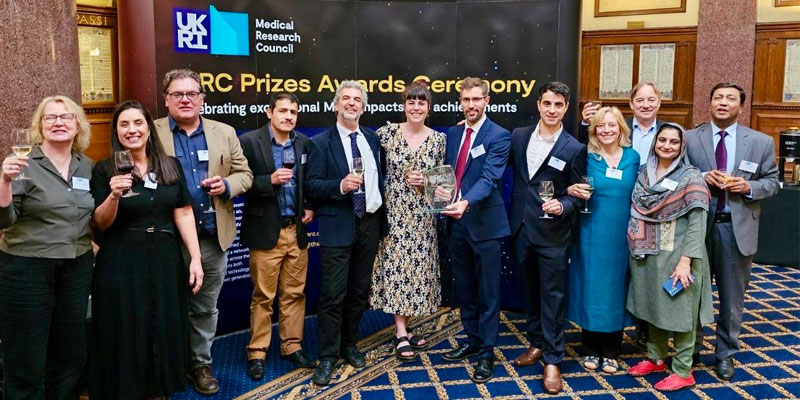Network lands major prize for its work in fighting neglected tropical diseases.
York Biomedical Research Institute colleagues are part of a prize-winning international research network.

York researchers have played a major role in a Global Challenges Research-funded (GCRF) Global Network for Neglected Tropical Diseases (NTDs), which has now landed a major Medical Research Council (MRC) Impact Prize.
The Network won the MRC’s Outstanding Team Impact category. The prize is awarded to teams of at least two different groups “made up of a wide range of members, with diverse scientific backgrounds, skill and perspectives whose collaborative team science approach has made a major impact in medical research”, according to the UKRI.
Funded by a £6.8 million Global Challenges Research Fund award from the MRC, the Global Network for NTDs brought together over 500 researchers from 13 institutes worldwide for collaborative research on leishmaniasis and Chagas disease.
York’s Network members are Professor Jeremy Mottram, Dr Pegine Walrad and Professor Tony Wilkinson, as well as research fellows Dr Katrien Van Bocxlaer and Dr Nathaniel Jones, with key collaborators Professor Nahid Ali of the Indian Institute of Chemical Biology, Kolkata, India, Professor Carlos Robello, of Institute Pasteur, Montevideo, Uruguay and Professor Ana Paula Lima of the Federal University of Rio de Janeiro, Brazil. The Network was led by Professor Paul Denny at Durham University.
Professor Mottram explained the aims of the network and why he feels it was chosen as the category winner: “The network sought to grow laboratory infectious disease research capacity and expertise in Neglected Tropical Disease endemic countries across Asia and South America.
“It’s made significant scientific advances in discovery science that will underpin the development of new drugs. Importantly, the network’s cross-disciplinary partnerships between endemic country scientists have demonstrated equitable working practices across the globe, whilst also democratising and decolonising the field.”